Compensation
Activities that are associated to a compensation boundary event have a compensation marker. These activities are called compensation handlers and are in charge of reverting the effects of the activity with the compensation boundary event, the compensation activity.
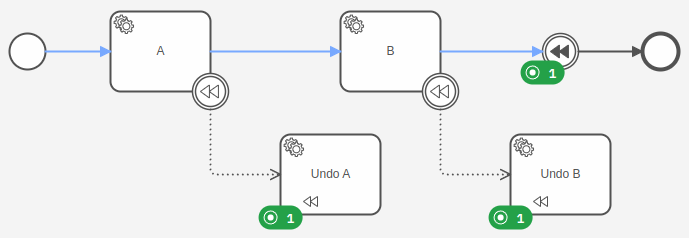
When a process instance reaches a compensation throw event, it invokes the compensation handlers for all completed activities. If an activity has been completed more than once, the compensation handler is invoked for the same amount.
Read more about triggering the compensation in the compensation events documentation.
Embedded subprocess as compensation handler
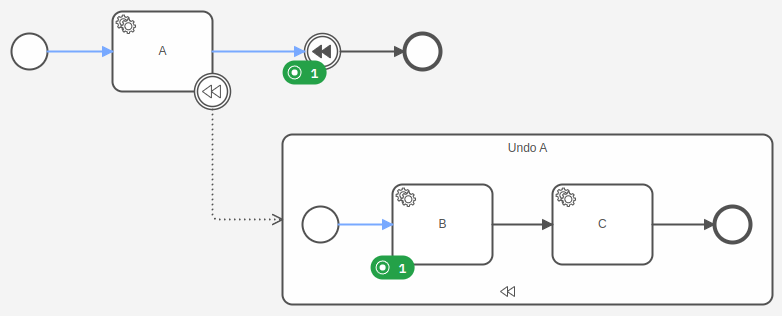
The subprocess contains the steps to undo the actions of the compensation activity. Using a subprocess can be useful if a sequence of steps is required to undo the actions of the activity.
Call activity as compensation handler
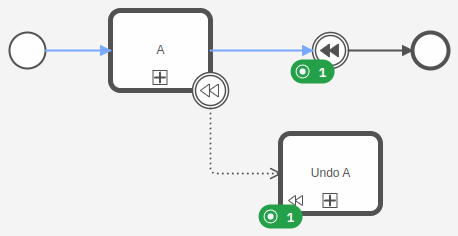
The call activity contains the steps to undo the actions of the compensation activity. Using a call activity as the compensation handler can be useful since the compensation handlers of a child process are not invoked.
Multi-instance activity as compensation handler
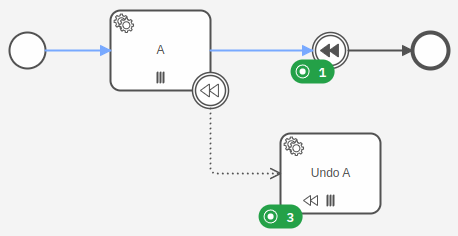
The compensation handler for a multi-instance activity is invoked only once, rather than for each item in the input collection. To invoke the compensation handler more than once, the handler can be marked as multi-instance too.
If the compensation handler should revert the effects of each item in the input collection, it could use the same input collection as the multi-instance activity.
Interrupting compensation handlers
Compensation handlers can be interrupted. If the process instance is canceled, it terminates all compensation handlers.
Within a process, the process instance terminates a compensation handler if the compensation throw event that invoked the compensation handler is interrupted. This can happen in the following cases:
- If a terminate end event is entered.
- If an interrupting event subprocess is triggered.
- If the compensation throw event is inside an embedded subprocess and the subprocess is interrupted.
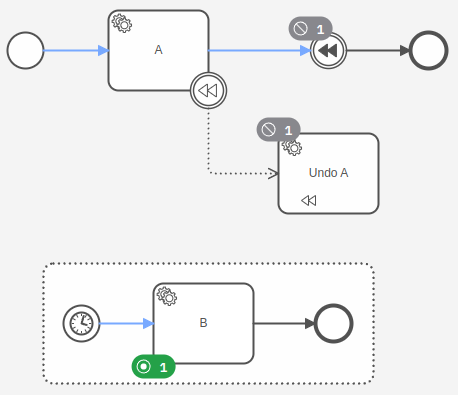
Variable mappings
A compensation handler can define input and output variable mappings.
Input variable mappings are applied before invoking the compensation handler. They can be used to create local variables for the compensation handler.
Output variable mappings are applied after completing the compensation handler. They can be used to customize how the result variables of the compensation handler are merged into the process instance. By default, all variables are merged.
Additional resources
XML representation
A service task with a compensation marker:
<bpmn:serviceTask id="undo-A" name="undo A" isForCompensation="true">
<bpmn:extensionElements>
<zeebe:taskDefinition type="undo-A" />
</bpmn:extensionElements>
</bpmn:serviceTask>